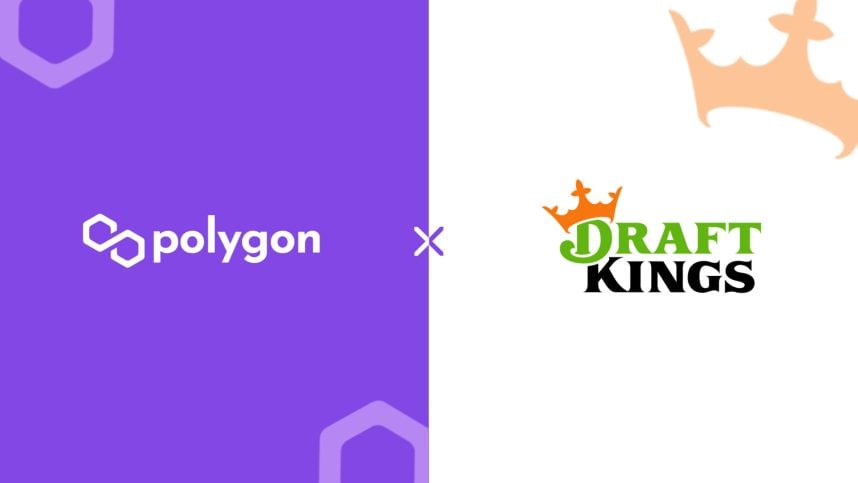In October 2021, DraftKings (NASDAQ: DKNG) announced a partnership with the cryptocurrency Polygon to support debuts on nonfungible tokens (NFTs) on DraftKings Marketplace.

At the time of that announcement, Polygon, which is based on the Ethereum blockchain, was the number 21 digital currency by market value. Today, it ranks 14th, but a new article calls into question the nature of the DraftKings/Polygon relationship, suggesting the Web3 firm may have given the gaming company preferential treatment.
An article published earlier Thursday by Danny Nelson of CoinDesk indicates Polygon paid DraftKings “millions of valuable MATIC tokens” to run a Polygon validator network. That arrangement stemmed from a March 2022 announcement in which the Boston-based online sportsbook operator said it’s partnering with Zero Hash to stake digital assets it holds in its treasury to support the Polygon (MATIC) blockchain network.
With this collaboration, DraftKings is optimizing its working capital and liquidity as it operates a validator node that contributes to Polygon’s governance and network security,” according to a statement issued by the sportsbook operator at the time.
The CoinDesk article pointed out that Polygon didn’t disclose that it was compensating DraftKings to run one of its validator networks. Now, the validator isn’t operational, which could be a sign Polygon suffered losses on the arrangement with DraftKings. Neither company commented on the matter to CoinDesk.
On-Chain Data Confirm Special DraftKings, Polygon Relationship
In the cryptocurrency space, on-chain data serves as a digital ledger used to identify various transactions made in digital assets.
Using that data, CoinDesk confirmed that starting in October 2021, DraftKings received “millions of dollars in crypto directly from Polygon” and then earned millions more through the staking relationship. Few of Polygon’s other network validators enjoyed such preferential treatment.
There were benefits for Polygon as well. When the deal with DraftKings was announced in October 2021, the cryptocurrency traded at $1.76. By Dec. 27, 2021, it had surged to $2.77. It trades at 76.22 cents at this writing.
Polygon solves pain points associated with blockchains, like high gas fees and slow speeds, without sacrificing on security. This multichain system is akin to other ones, such as Polkadot, Cosmos, Avalanche, etc., according to the token’s developers.
The asset looks to beat those rivals by fully leveraging Ethereum’s network effects while being more powerful and secure.
DraftKings ‘Not Equal’ in Polygon Community
An unidentified Polygon executive told CoinDesk DraftKings was not an “equal community member” with blockchain data confirming the gaming company received unusually large compensation to run the now-defunct validator network.
That arrangement ran contrary to what Sandeep Nailwal, co-founder of Polygon, said in a March 2022 statement.
“DraftKings will take its place among existing validators as an equal community member,” he said in the release.
However, that statement didn’t make clear that Polygon would be directing millions of tokens to DraftKings. Making matters worse for other Polygon operators was the point that the tokens sent to DraftKings were not staked, meaning that when they hit the network, the rewards accrued by other delegators were reduced, according to CoinDesk.
Last month, Polygon booted DraftKings from the validator program, but the two entities maintain an NFT relationship. A DraftKings staffer told CoinDesk the company is working to be reinstated as a Polygon validator.
The post DraftKings Allegedly Received Preferential Treatment on Polygon Network – Report appeared first on Casino.org.


